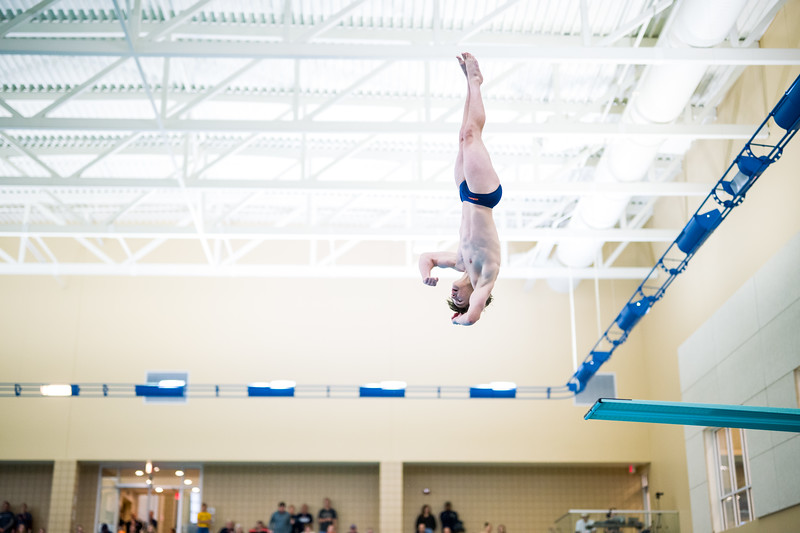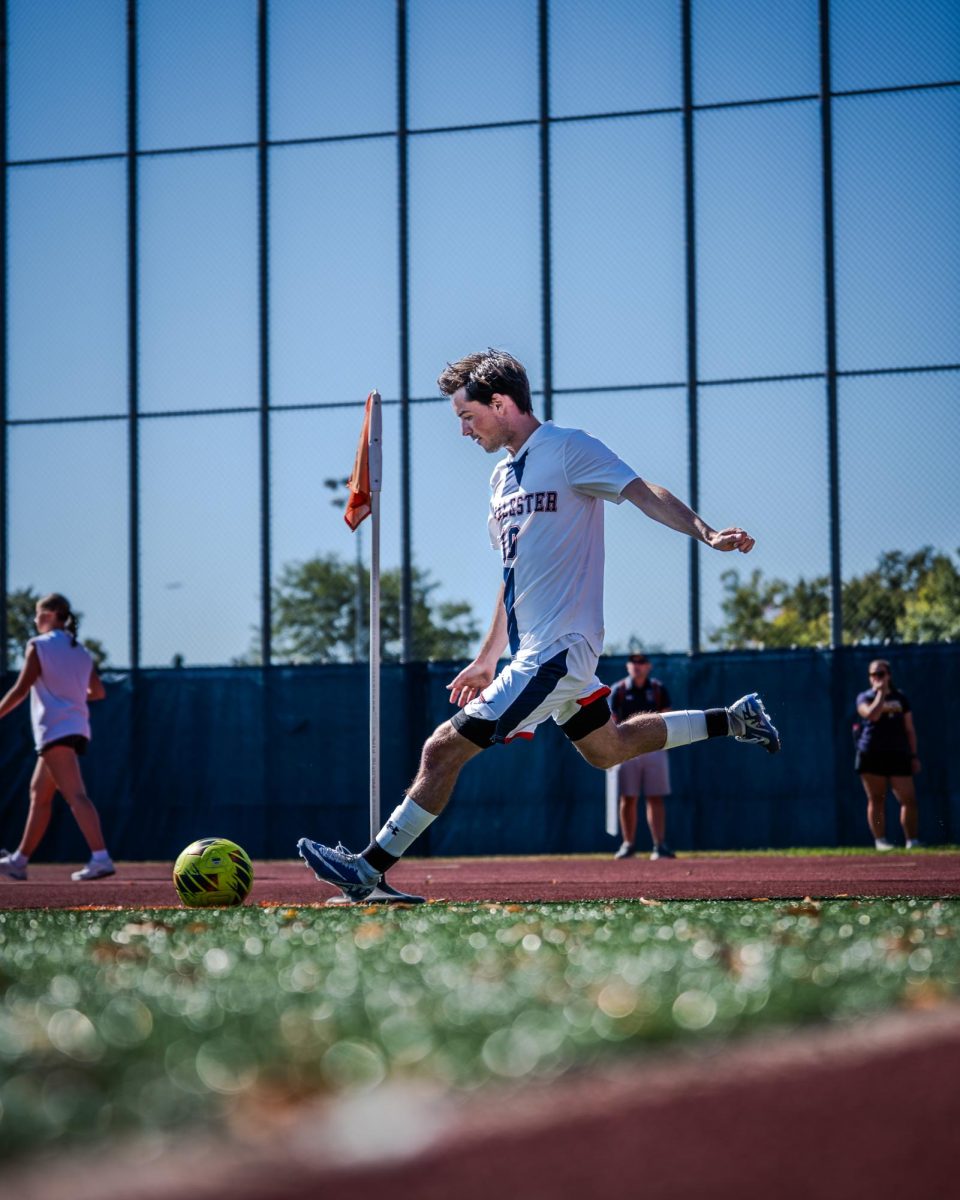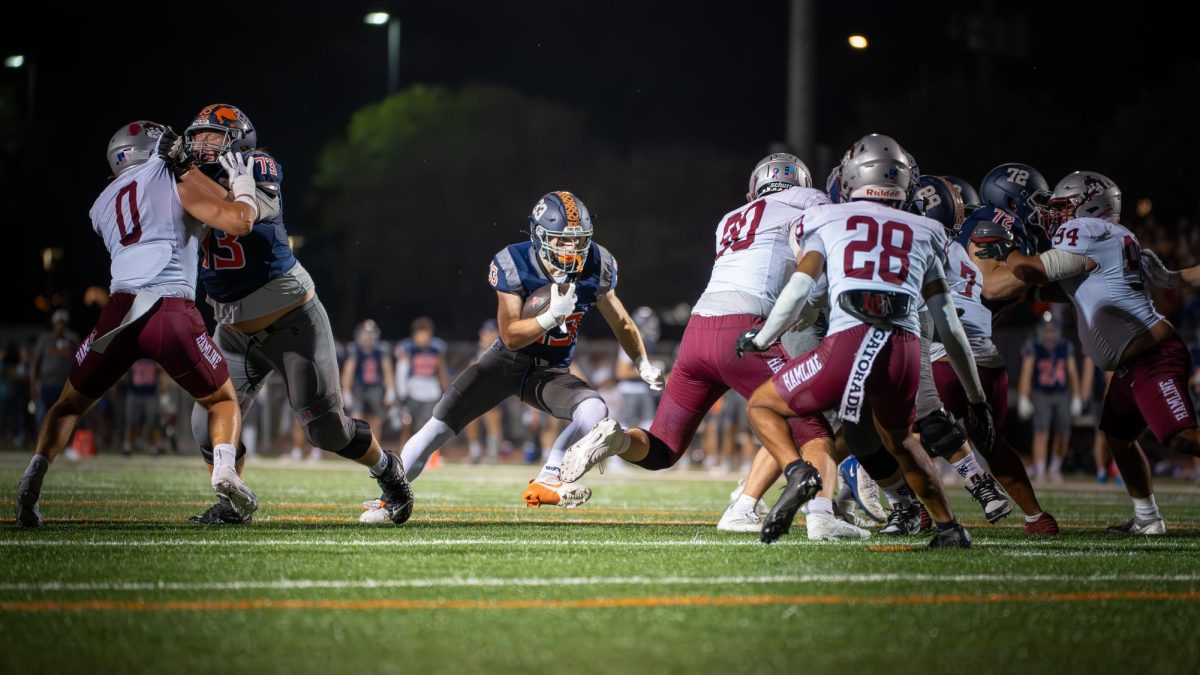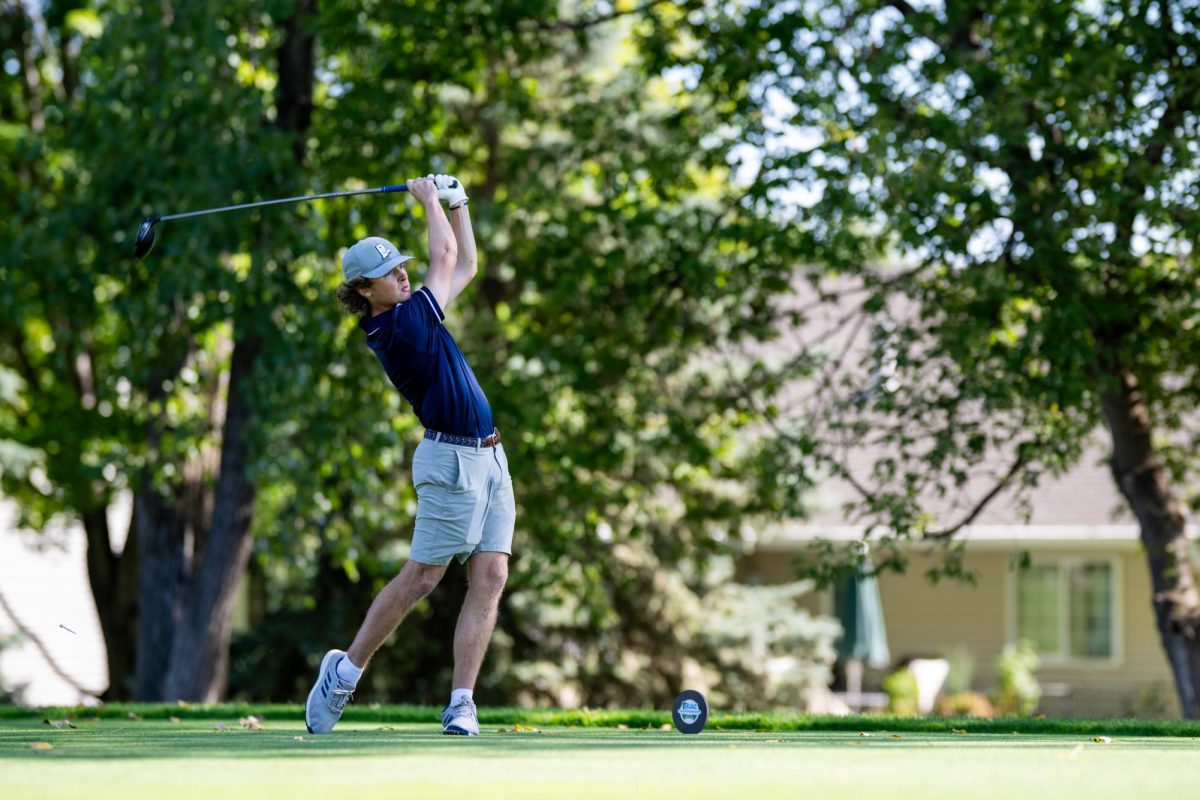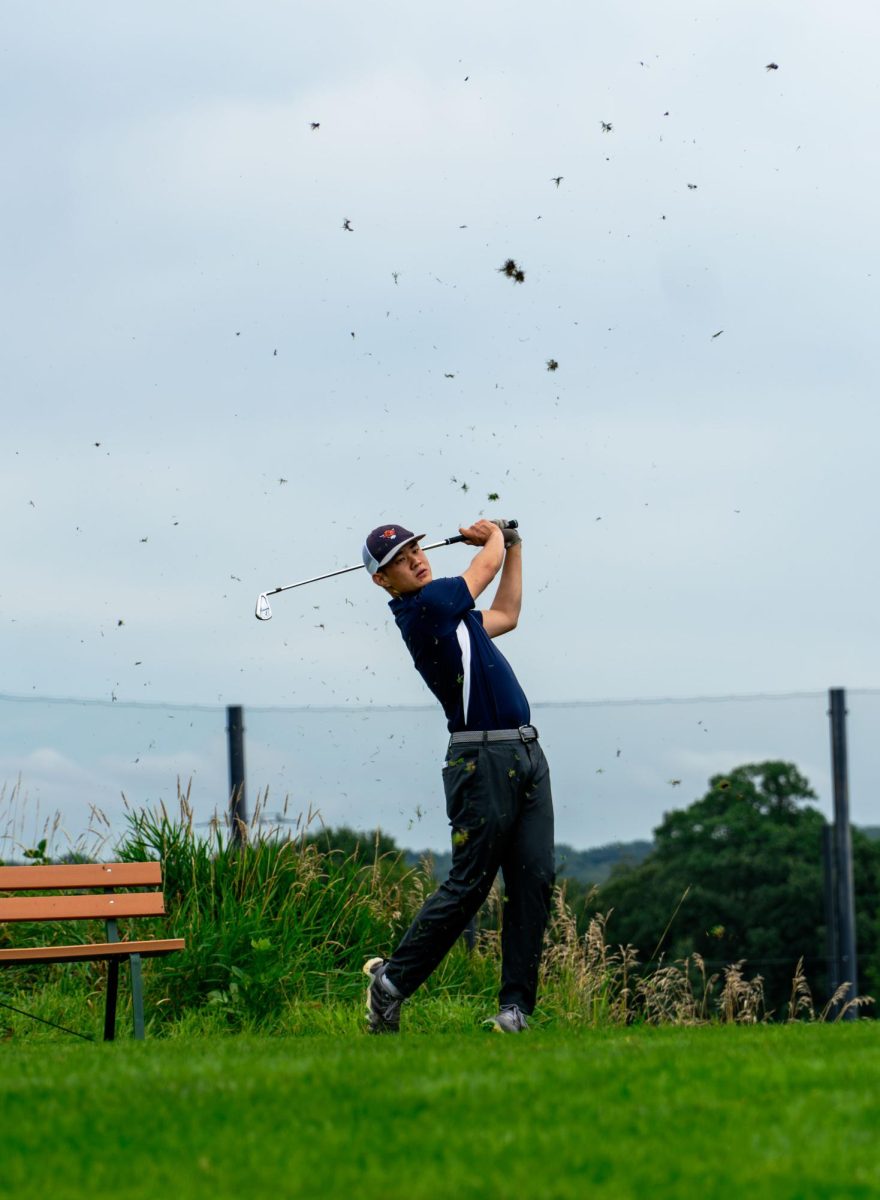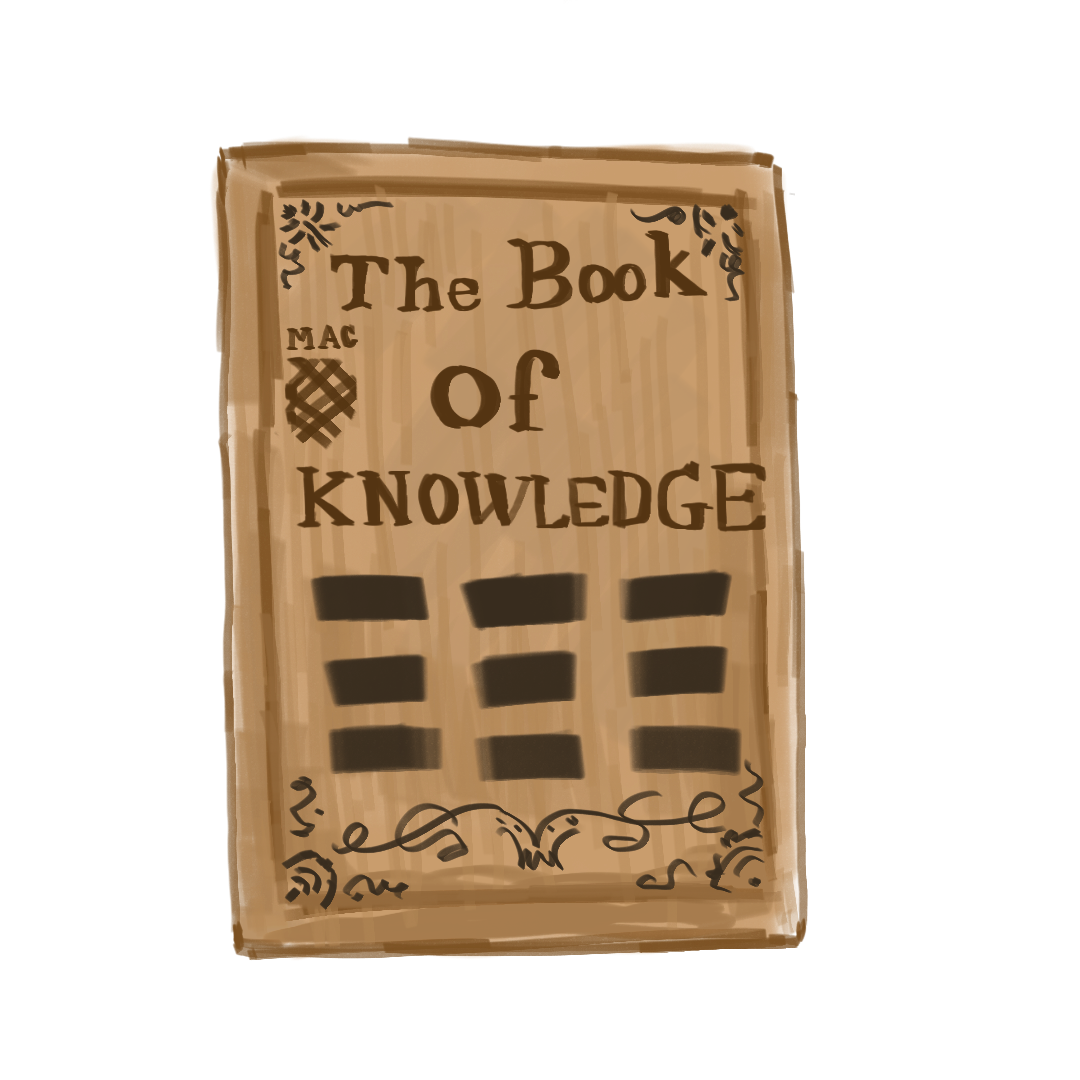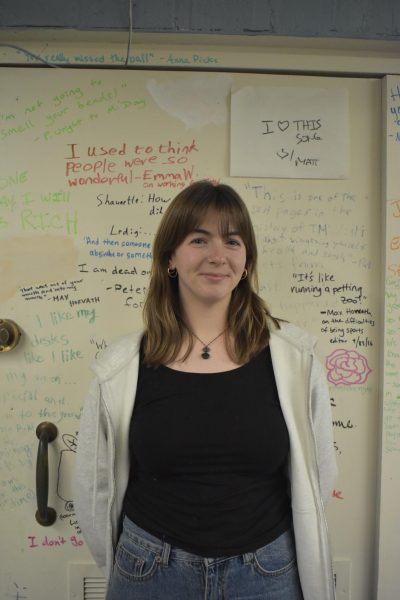Diving, while it shares a pool and team with swimming, stands alone as a sport of mental toughness and aesthetic and athletic perfection. Those who come into the sport often do so from a background in swimming or gymnastics, rather than diving itself — this means athletes are not only learning new dives, they are learning how to dive.
The Macalester dive team is travelling to the Jean K. Freeman Aquatic Center in two weeks to compete at the Minnesota Intercollegiate Athletic Conference (MIAC) Championships.
Of the three women and one man attending the competition, only one came to Macalester with substantial experience in the sport.
Dive Coach Spencer Brady, who has been with Macalester since fall 2023, underwent this transition herself. Once a competitive swimmer, Brady learned to dive at 12 years old. She went on to compete on Hamline University’s dive team, serving as captain her senior year.
“Because I was a swimmer turned diver, I can help coach them better, because I can use swim terms,” Brady said. “Since I’ve been in their shoes, and it took me a while to build up to where I ended in my diving career, it helps a lot in knowing the verbiage and what they need to change, because [swimming and diving]… may be on one team, but they’re very different side by side.”
Divers compete during breaks between swimming events on a one-meter and three-meter spring diving board. They perform their “voluntary dives” before expanding into “optional dives,” which are showier and harder to hit consistently. The scores are based on a subjective average from coaches and officials, which they multiply by the degree of difficulty of each dive before adding it all up at the end.
“Diving is a little bit physical,” Brady said. “You have to be strong to push off the board; it’s mostly legs, it’s not a lot of arms, and then core, with your kick-outs and staying tight through the water. But it’s so mental. Mental blocks happen, it can be the simplest dive, and if it’s just the wrong day and mentally you’re not all there, you won’t be able to do it.”
Though it is an individual sport, good divers succeed because of their support system. For Maya Thomas ’28, who started diving at the start of this academic year, Brady has been that support to get her through the transition and through the tough moments on the board.
“She reads [people] really well, so she knows how to push,” Thomas said. “When we had [our] training trip in Arizona, I hadn’t really done any dives on three-meter, but she pushed really hard, and it was good for me.”
With a small team and familiarity with the conference, Brady can connect with her athletes easily, honing in on their strengths and encouraging their success.
“We have one male diver [on the MIAC roster], Dylan [Herlihy ’26], and he is so much fun to coach because he has that gymnastics background where he knows where his body is. His body awareness is amazing,” Brady said. “We’re able to pull [off] things that I’ve never seen, I’ve never done before, and that makes it really fun as a coach to be like, ‘Okay, let’s do this new thing together.’”
Herlihy’s strengths lie in his twists, which Brady is putting to use in a dive she’s never seen in competition: a front two-and-a-half with a full twist. Herlihy’s mental discipline as he faces dives like these all comes down to that preparation for when he’s up on the board with everyone watching.
“I know not everyone likes this about diving, but when the pool gets all quiet and I’m the only one on that board, you can hear a pin drop,” Herlihy said. “I actually enjoy those moments. I enjoy something about just that tranquil nothingness right before I chuck some front two and a half.”
The dive team, which has grown to seven from last year’s three, mostly features athletes who are new to the sport and learning as they go, creating an environment of support through failure and camaraderie.
“It’s been really nice having somebody to relate to,” Thomas said. “Dylan and Lauren [Schutz ’25] did this transition a couple years ago. [Schutz] was very welcoming, and she was like, ‘This is how it’s going to work, you guys are going to learn this,’ because she is very familiar with the process.”
Thomas spent much of last semester building up her voluntaries on the one-meter, and over the team’s training trip in Arizona in January, Brady put Thomas up on the three-meter. Thomas started to nail dive after dive.
“Something happened over winter break where she came back and decided this is her sport,” Brady said. “Her diving changed immensely. Her diving has improved because she wants it now. It’s not just that I want her to do well. She wants to do well.”
Before January, they only had two of three spots for MIACs filled, but after Thomas’ introduction to the three-meter, she was eligible to compete and has spent the time since building up her 11 three-meter dives.
It’s hard not to let the doubt creep in though, especially for athletes so new to the sport and ahead of a competition as big as a conference championship.
“I’m really freaking scared [to compete],” Thomas said. “But, you know, excited. [The] big thing is you have to be confident, because if you don’t have the confidence, that’s when you mess up dives. So, I think that’s the mindset to bring into MIACs.”
As the team winds up to the competition, they wind down their intensity at practice, focusing on the visualization and meditation Herlihy does so well.
“Practices in these last few days will help to some degree, but ultimately, what I have is what I have,” Herlihy said. “I just need to focus on myself and go out there and compete to the best I can, and that means taking it one dive at a time. It’s almost entirely mental preparation at this point for MIACs.”
The swimmers, doing their own preparation for MIACs under Head Coach Kyllian Griffin, still do what they can to offer their support to the diving team, something Brady believes makes this Macalester team so special.
“The hardest thing with diving is, a lot of times, it gets forgotten and swimming is the main focus,” Brady said. “But Kyllian has made sure, along with the other coaches and the swimmers, that it’s one team and that the swimmers care about diving. We have swimmers that come to practice because they’re interested in watching our divers and cheering them on when it’s going to be a hard day. They don’t have to do that.”
Over the course of the season, the diving team has grown immensely in individual and team performance, helping to push the team to victories they otherwise may not have won.
“Diving, more or less, can make or break a meet,” Brady said. “We had a meet against Carleton, that our men’s team won by, I think it was six points, and it was the first time we won [that meet] in a long time. It was because we have two divers instead of just one. So, we got those extra points because of diving.”
The team hopes this trend will carry on through MIACs as the men’s and women’s sides push for individual and team titles. While the competition will be high, Macalester feels more than ready.
“There’s an adrenaline rush to it that I enjoy, and I think people enjoy when watching it,” Herlihy said. “And I hope that as the swim team gets more recognition, so does the diving aspect of it.”

